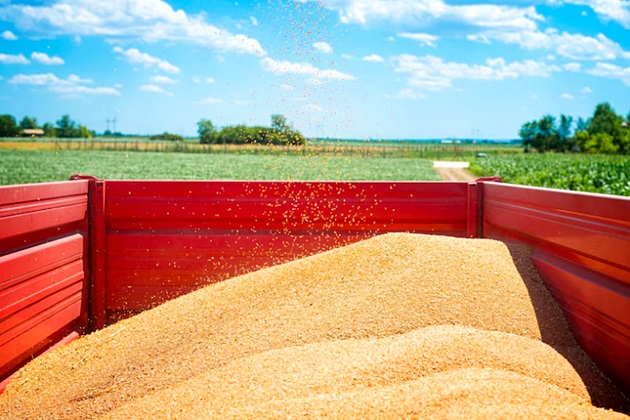822

According to Euractiv, the European Commission has announced that it will unveil new measures to cope with the increase in imports of Russian agricultural products, especially cereals, into the EU.
A set of measures will be developed
According to a statement issued by the President of the Commission, Ursula von der Leyen, and Polish Prime Minister Donald Tusk, they have engaged in a "deep discussion" on a highly anticipated set of agricultural proposals aimed at meeting the demands of farmers protesting across Europe by relaxing the environmental requirements of the Common Agricultural Policy (CAP).
The discussion between the two leaders also addressed the state of cereal markets in the bloc and the impact of cereal imports from Russia.
"The European Commission is assessing the possibility of introducing restrictions on imports of agricultural products from Russia to the European Union. On this basis, the Commission will soon present a proposal," the text states.
Details about the discussions were provided after EU Agriculture Commissioner Janusz Wojciechowski decided to announce the adoption of European-level measures in his native Poland.
Wojciechowski faces increasing pressure from the Polish government and his national party, Law and Justice (PiS), to resign amid widespread protests by farmers across Europe in recent months.
On Friday morning, he held a press conference in Warsaw for Polish-speaking journalists, addressing the issue of Russian cereals and their impact on EU markets.
"When Russia uses food as a weapon, we must react. Russia will export over 50 million tons of wheat.
When a country has a quarter of all wheat exports, it can destabilize the situation. And that's what we're seeing," he told journalists.
Calls at the EU level
While food and fertilizer imports have been exempt from EU sanctions on Moscow since the start of the conflict in 2022 to maintain global food security, the Commission has faced increasing pressure from EU leaders and legislators to impose trade restrictions.
Last month, Latvia introduced a unilateral commercial ban on Russian agricultural imports, and Tusk suggested that similar measures could be taken in Poland.
Members of the European Parliament (MEPs) from across the political spectrum have supported the idea of restrictions on Russian agricultural products. During a debate in Strasbourg on Tuesday, they highlighted the potential role of such trade in financing the war against Ukraine.
However, EU Commissioner for Home Affairs Ylva Johansson, speaking on behalf of EU diplomatic chief Josep Borrell, warned against potential distortions resulting from sanctions on Russian food, which lead to market distortions and drive up food prices for countries in the Global South that rely on Russian imports. (Photo: Freepik)




